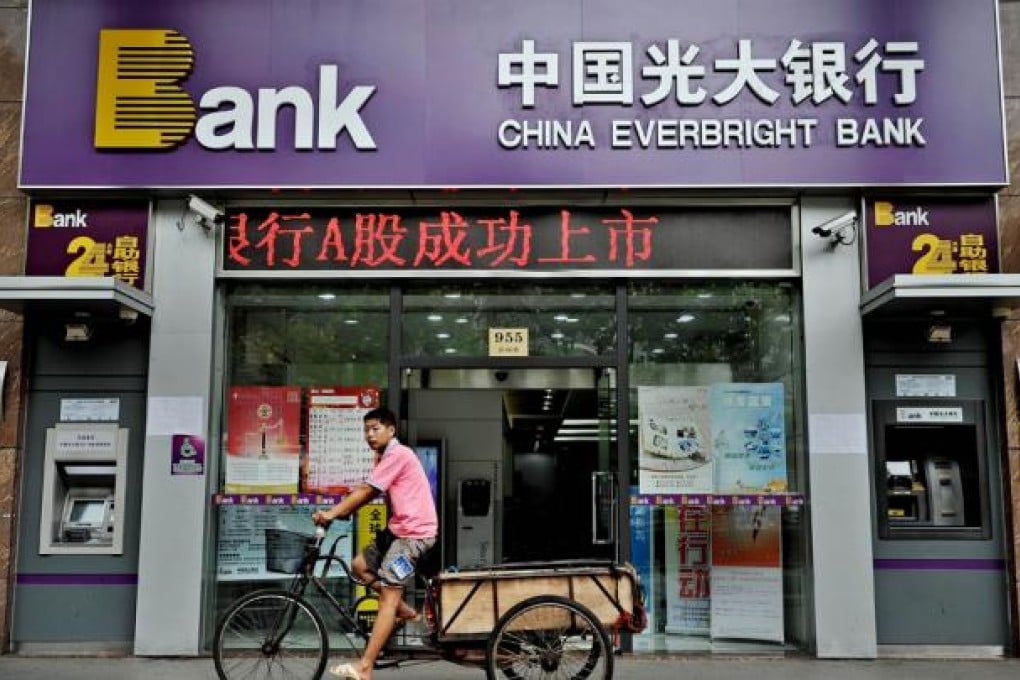Cash-strapped Chinese banks turn to Hong Kong
All eyes will be on Beijing-based China Everbright Bank as it sets out yet again to raise capital in the city, despite the tough market times

Mainland banks are reviving their listing plans to raise money in Hong Kong this year as Beijing continues to keep an indirect hold on onshore initial public offerings.
Banks face growing problems raising money on the mainland, partly because the securities regulator has held off on domestic listing approvals over the past few months. But market watchers say that even in Hong Kong it will not be easy for the capital-hungry lenders to convince investors to buy their shares, given they are not likely to be offered cheaply.
Of the banks that are readying for a Hong Kong listing, Beijing-based, Shanghai-listed China Everbright Bank is likely to be the first off the rank. The bank is no stranger to Hong Kong, having failed at least four times - due to the weak market - to list in the city. Some investors were also concerned about the medium-sized, state-owned bank's asset quality, analysts said.
Everbright Bank aims to raise between US$1.5 billion and US$2 billion in the second quarter, and its float could quickly follow two other major non-banking offerings - one by Sinopec Engineering and the other by China Galaxy Securities.
"Everbright Bank is very hopeful of getting listed this time but there is no guarantee," said a banker who has followed the lender's on-and-off listing plans over the past few years. "The problem is that despite the bad market conditions Everbright Bank's top bosses don't want to cut the share price [for the Hong Kong float] and they want to get most of the shares covered by cornerstone investors to make sure they don't lose face again."